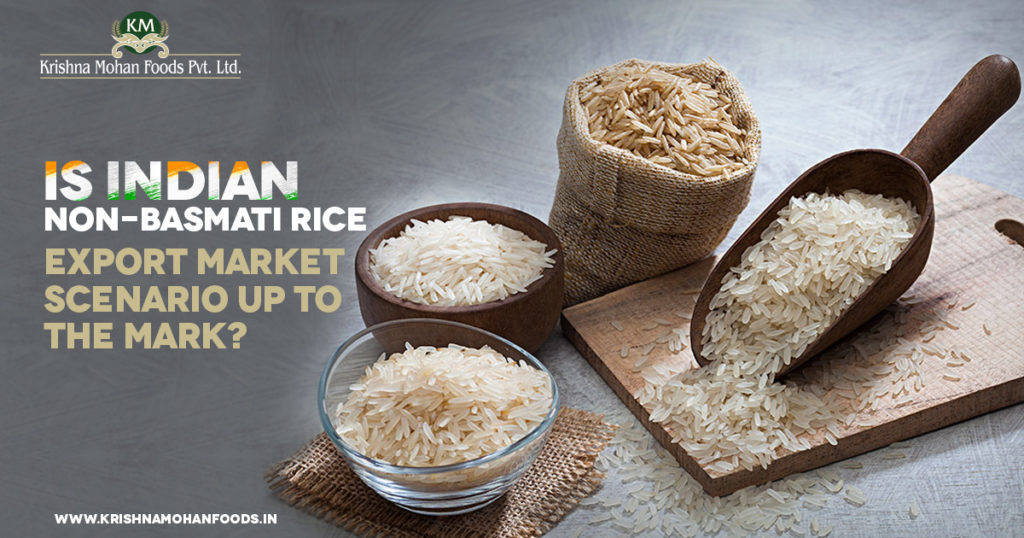Indian Non-Basmati Rice Export Market
Post Date01 Oct

Factors affecting the Indian Non-Basmati Rice Export Market
Basmati rice may be known as the king of rice, but there are several non-basmati rice varieties that are equally good. Basmati rice is long and flavourful, which makes it a superb choice for certain types of delicacies, but when it comes to a majority of dishes that require the use of rice, non-basmati varieties of rice dominates the game. These varieties include Sona Masoori Steam Rice and IR-64 Parboiled Rice. Let’s take a brief look into the factors affecting the Indian non-basmati rice export market:
Withdrawal of MEIS Scheme and its effect on exports
In April of this year, the government withdrew the 5% tax benefit incentives. Since this move, India’s export of non-basmati rice had declined by nearly half between April and May 2019. Around 711,837 tons were exported as opposed to 1.53 million tons in the corresponding period of 2018. That is more than a 50% plunge in exports. In terms of money, that is $294 million in 2019 as opposed to $652 million in 2018.
A consistent increase in the Minimum Support Price (MSP)
To encourage and help farmers, the government has consistently increased the MSP over the last couple of years. MSP is a fixed price for crops set by the government of India to protect farmers during times of bumper production when the price of their crops falls. This ensures adequate food grain production in India. However, this has also made the price of procurement higher and therefore, has made Indian rice uncompetitive in the global market.
A consistent MSP hike has outpriced Indian rice by $25, making it low in demand. Other rice-growing countries like Thailand, Bangladesh, and Pakistan have, on the other hand, been filling in the gap. Indian non-basmati rice exports are predicted to continue to fall sharply in the near future.
Declining import from Bangladesh
Bangladesh has now started growing its rice, which makes them less dependent on rice imports. At one time, Bangladesh was one of the largest importers of Indian non-basmati rice. But the increasing MSP and the fact that Bangladesh grows its own rice has drastically reduced its import and dependence on Indian non-basmati rice. In FY 2018-19, imports dropped by a whopping 70%.
Rationalisation of import duty by ASEAN countries is necessary for the growth of the trade
Indian rice is generally sold at a premium cost in most of the global markets because of its high quality. However, member countries of ASEAN levy a higher import duty. For instance, on Indian rice, Indonesia levies 10% import duty. But Pakistan has import-free access. The Philippines levies 50% import duty on Indian rice but only 35% on rice obtained from other countries. All this hurts the growth of rice exports from India. Without rationalisation of import duty by ASEAN countries, there could be a halt in the export of non-basmati rice.
Why the boom of rice Export has only benefited merchant capitalists and not consumers and producers
After non-basmati rice export was liberalised, international pricing has also set the price trend of domestic prices. This has resulted in the implicit calibration of border prices and domestic prices. While rice exports have risen, farmers are still finding it hard to cultivate rice, and rice demand is still below domestic availability. Disciplining international prices has not benefited consumers at all. All that the liberalisation of the rice trade done has benefited the merchant capitalists and not the producers or consumers.
About us
Krishna Mohan Foods Pvt. Ltd. is an emerging industry leader in the field of non-basmati rice. The company is a renowned Sona Masoori Steam Rice and IR-64 Parboiled Rice manufacturer and exporter to global markets.

